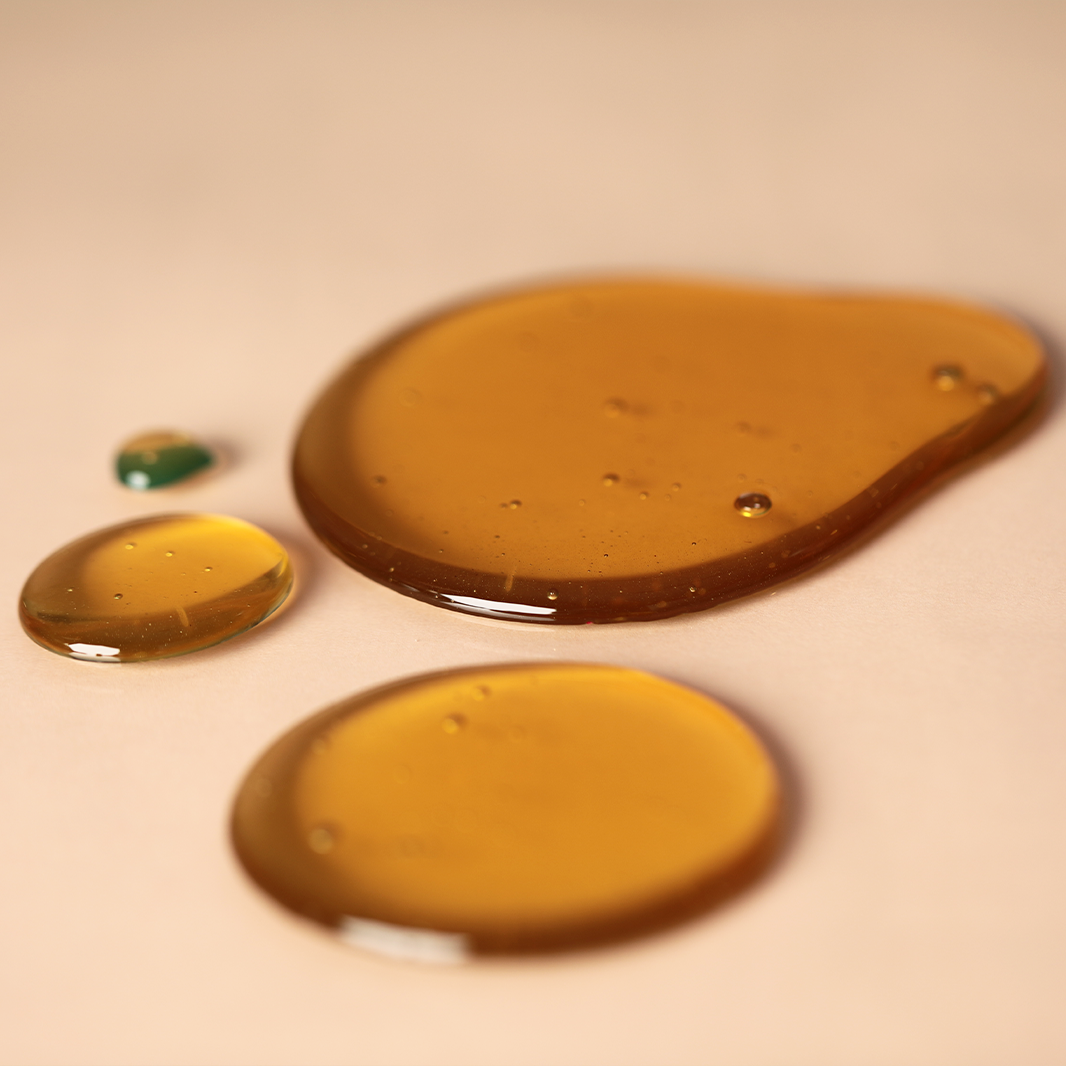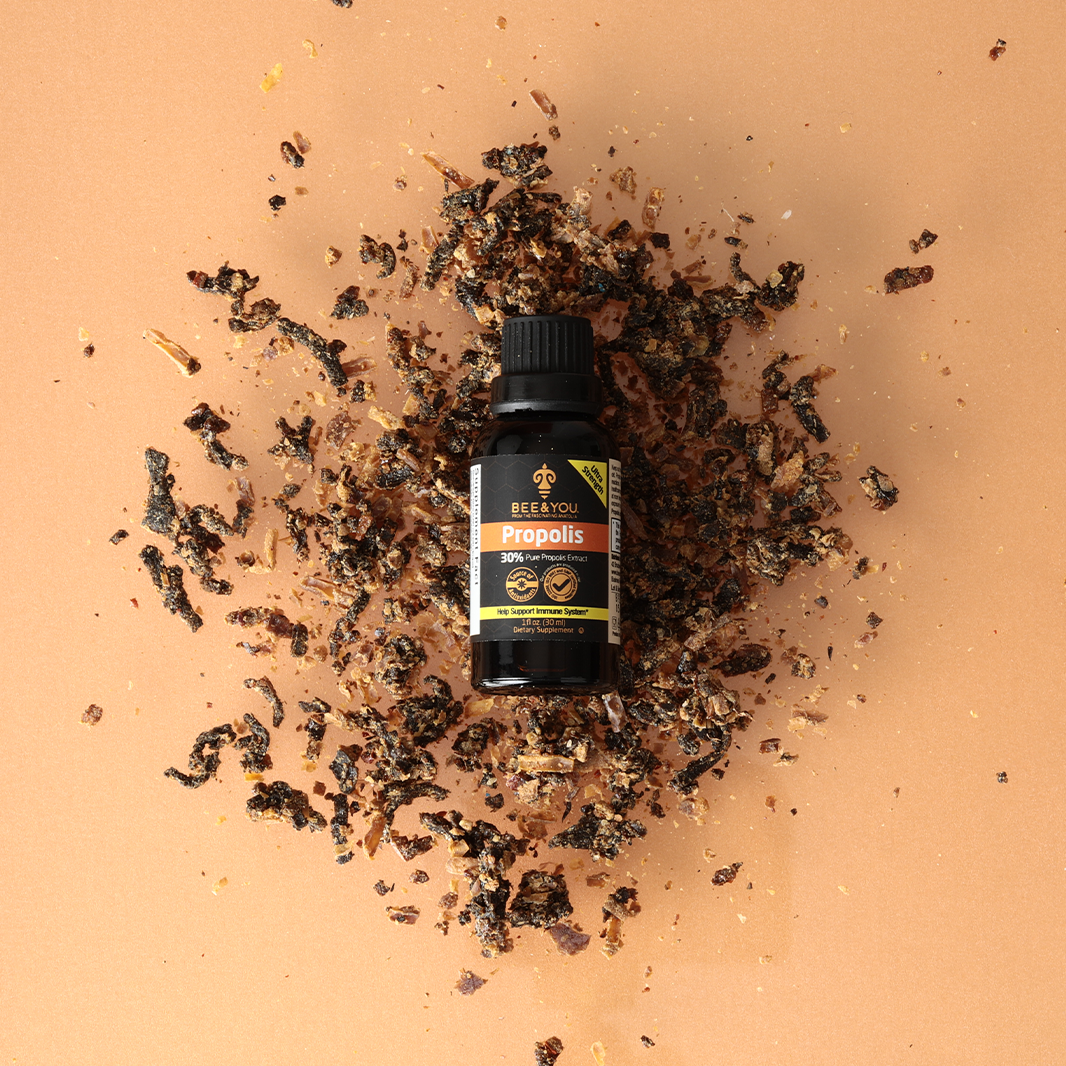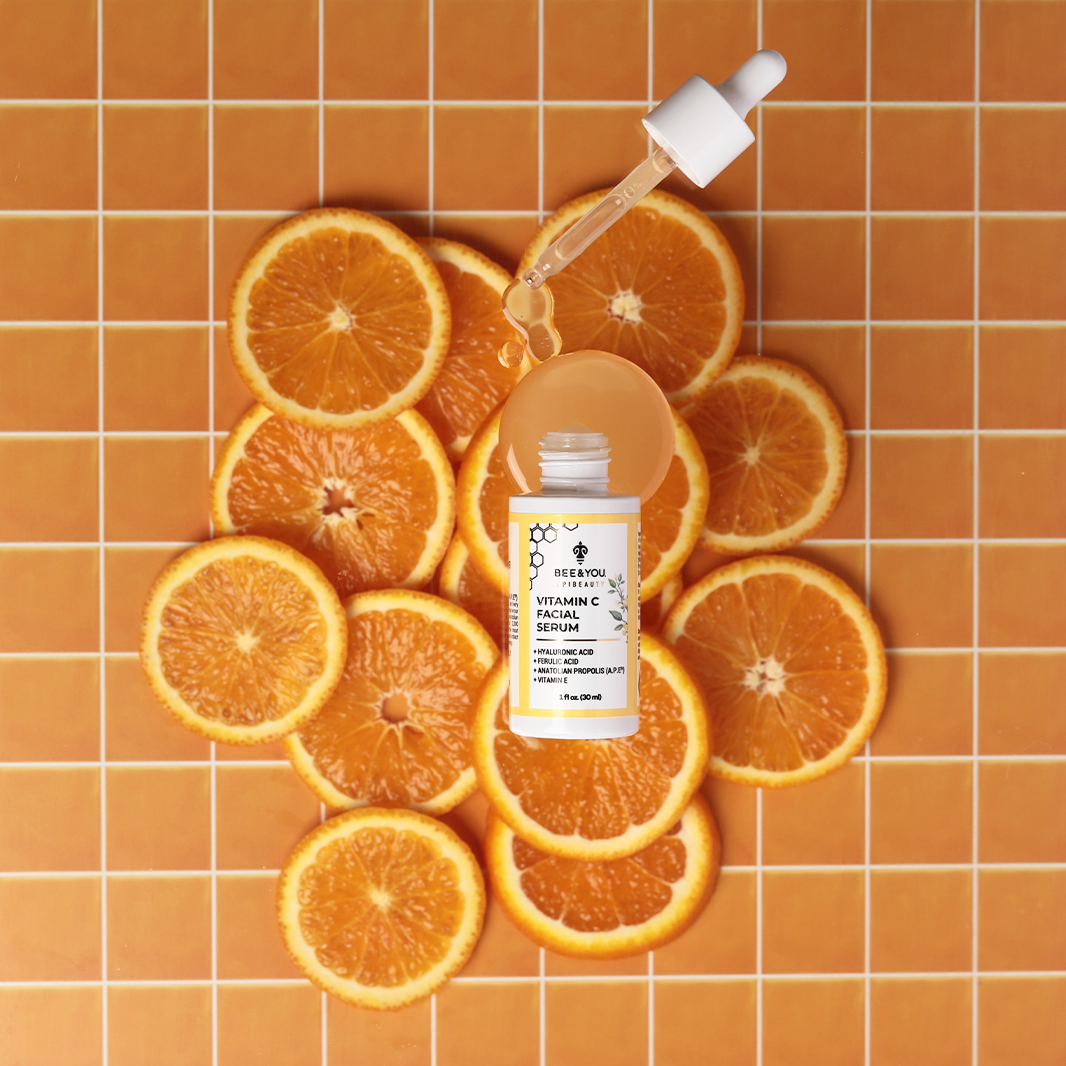Propolis is a natural product produced by honeybees from the leaves, stems, and buds of plants. Bees use propolis to kill microorganisms and sterilize their hive by covering the comb cells. Then the queen bee lays eggs on those cells, helping their healthy development. Furthermore, honey, bee pollen, and royal jelly are encapsulated in the hive under a layer of propolis, which helps preserve the products stored in the comb. Propolis has many beneficial effects due to its natural phenolic and flavonoid composition.
WHAT IS PROPOLIS EXTRACT?
Propolis extract is a processed form of raw propolis by extracting with the help of solvents such as ethanol, glycol, and glycerol. Experienced food scientists must do the extraction process under controlled conditions using the appropriate solvents. Propolis extract has x99 higher bioavailability in human cells than raw propolis.
ANATOLIAN PROPOLIS EXTRACT (A.P.E)
Anatolian Propolis Extract is sourced from pristine Anatolian mountains, home to 12,000 different plant species, one of the most biodiverse regions in the world, and extracted with a patented technology. Bee products obtained from this region have higher quality and nutritional content. Anatolian Propolis Extract (A.P.E) contains at least 15 different phenolic and flavonoid compounds with antioxidant activity. These are caffeic acid phenethyl ester (CAPE), caffeic acid, coumaric acid, quercetin, ferulic acid, cinnamic acid, rhamnetin, pinocembrin, resveratrol, apigenin, chrysin, luteolin, hesperidin, hydroxybenzoic acid, epicatechin is present. Anatolian Propolis Extract has at least 80 times more antioxidants than pomegranate juice.
HOW TO CONSUME PROPOLIS EXTRACT?
The recommended daily intake of pure Anatolian propolis extract (containing at least 10% pure propolis) for children aged 4-10 years is 10-40 drops, and for adults, 20-80 drops. It can be taken directly or mixed with cold drinks such as water, milk, juice, or smoothies.






